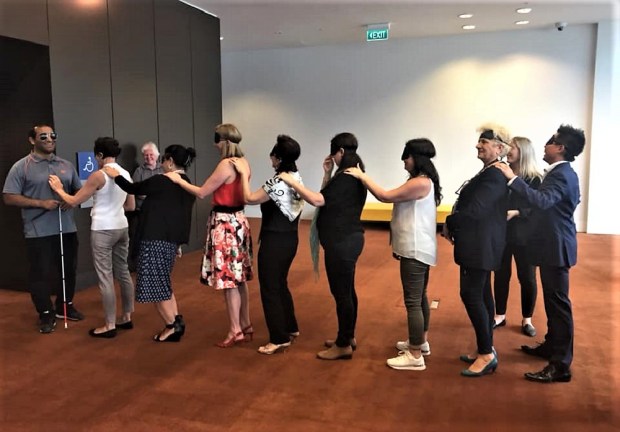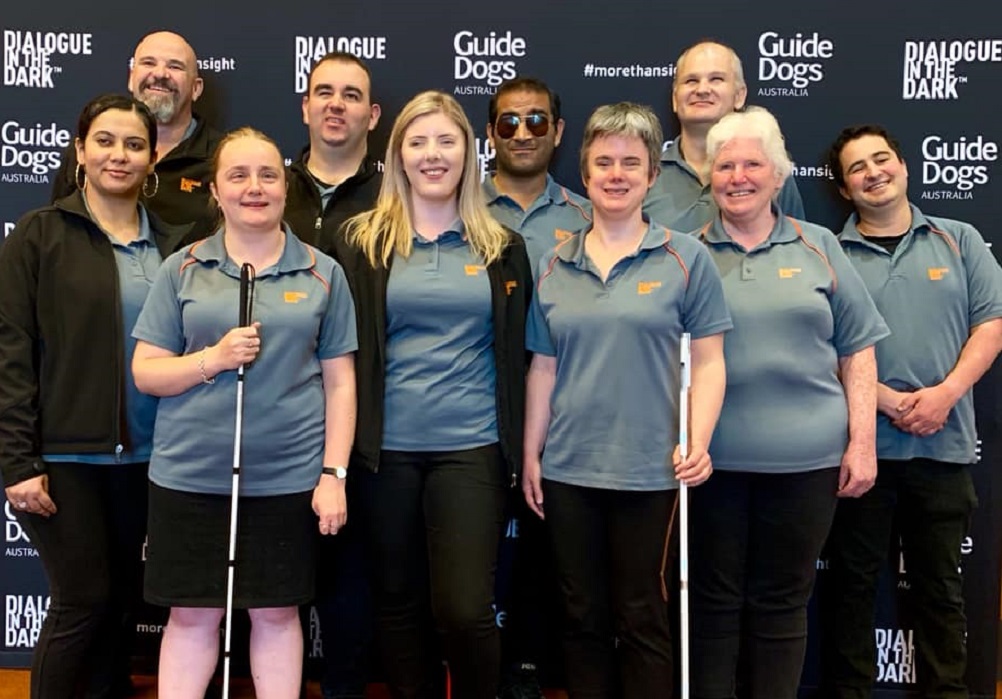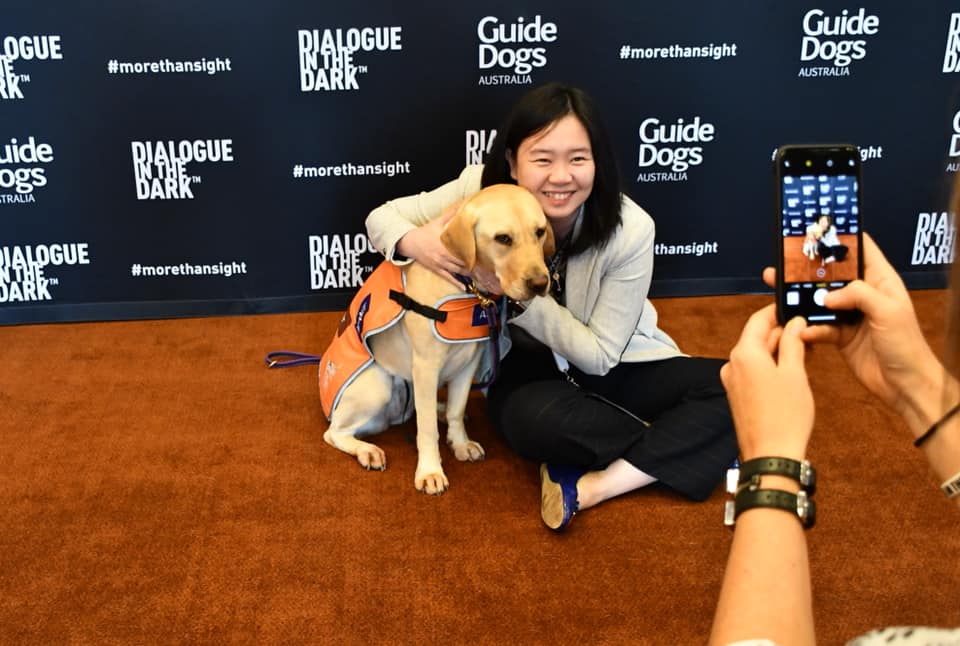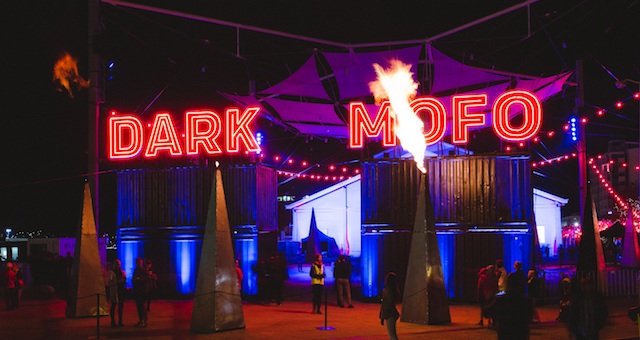
Guide Dogs Victoria brought its award-winning Dialogue in the Dark experience to AIME for the first time this year, designed to push delegates out of their comfort zones to gain a better appreciation of the unique skills of people with a disability.
The immersive experience saw delegates enter a completely dark room, where they were seated at a table with the help of facilitators who are blind or have low vision.
The group was given a series of challenges, which all relied on verbal and physical communication to successfully complete.
Not only did the experience challenge limits, it reminded delegates why inclusivity and accessibility must remain top of mind for the meetings and events industry.

Kathryn Lee from Lumino Events summarised the experience aptly, saying she entered the session with trepidation and walked away having learned valuable lessons.
“To begin with I felt unbalanced and concerned as to how I was going to participate,” she said. “But I’ve walked away from the session with so much respect for what losing a sense can do to bring people together.
“In the event world it’s all about human interactions and I can’t think of a better way for a conference or meeting where you want to break down barriers and instantly give people something to talk about, build rapport and relate to than a Dialogue in the Dark session.
“It made us laugh, it made us think, it gave us camaraderie, it identified leaders…it highlighted the clarity that we all need to bring to our words when we speak them each day. I can’t recommend it enough.”
Here are three key lessons we took away from our experience at Dialogue in the Dark:
1. If you don’t speak, you don’t exist
After being led into the pitch-black room by our facilitators, one of the first pieces of advice we were given was: “If you don’t speak, you don’t exist.”
In the dark, we all had to rely on constant verbal communication to not only get the attention of one another but to help convey our location in the room during the various tasks.
In the context of the experience, speaking up was essential to completing the task effectively and to communicate with each other. But this piece of advice also translates to our personal and business lives, reminding us of the importance of speaking up and using our voice to be heard – and seen – by others.
2. The importance of listening
While the experience taught us the importance of speaking up in order to complete a task, it also revealed the importance of listening.
During one of the tasks, the facilitator explained a set of rules for completing the next challenge.
Afterwards, a member of the group was asked to repeat the instructions back – they were stumped. The participant tried relaying the rules to the group and, in doing so, it was clear they had interpreted the information differently and misunderstood the instructions.
This showed us why it’s crucial to listen carefully to those around us in order to complete tasks effectively and achieve the best results possible.
3. You can’t succeed without trust
From the beginning, trust was a key component to the Dialogue in the Dark experience. We had to trust the person in front of us to lead us into the room safely, we had to trust our facilitators to help us find our seat, and we eventually had to trust the members of our group in order to complete the series of tasks at hand.
Completing simple tasks became challenging with our vision removed, and this was made harder by the amount of voices trying to communicate all at once.
It wasn’t until one person took the lead and asked the rest of the group to trust in them that we were able to complete the tasks (some successfully, others not!).
Dialogue in the Dark offers tours and workshops in Melbourne for corporate teams. More information is available here.




